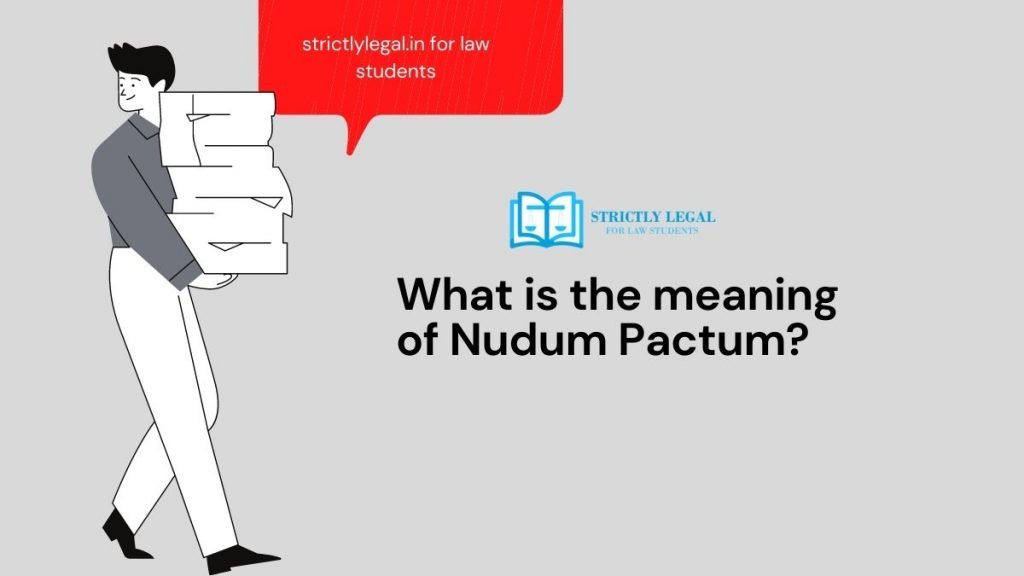Nudum pactum is a Latin phrase that translates to “a naked promise” in English.
Under Indian law as well as English law, one of the essentials of the constitution of an agreement is consideration. A consideration in other words may be described as something in return(quid pro quo). An agreement without consideration is a naked promise also known as ‘Nudum Pactum”. It is legally unenforceable and therefore not binding on the parties.
Table of Contents
Nudam Pactum in India
Section 25 of the Indian Contract Act lays down certain exceptions when agreements without consideration are valid. It states that nudum pactum agreements are void unless:
- It is in writing and registered: It is written and registered as per the provisions of registration of documents currently in force and it is a result of or made on account of love and affection between parties standing in near relation to each other; or
- Is a promise to compensate for something done: It is a promise to compensate a person who has previously voluntarily done something for the promisor, or something that the promisor was legally obligated to perform, in whole or in part.
- A promise to pay debt barred by limitation law: The law of limitation puts a time bar on when a person can sue for unpaid debt. Any agreements making a promise to extend such a time bar is without consideration and still valid.
Illustration of Nudum Pactum
- Ram promises to pay Sita Rs. 50,000 for nothing. This is a bare promise and therefore unenforceable.
- Rahul, father of Rohit promises to pay Rohit a sum of Rs. 1500 and puts it in writing and gets it registered. This is a contract arising out of natural love and affection and hence valid as per the provisions of section 25 of the contract act.
- Soumya owes B Rs. 41,000, but the debt is barred by the Limitation Act. Soumya signs a written promise to pay B Rs. 41000 on account of the debt. This instead of being a bare promise (nudam pactum) is valid and enforceable as a contract because it falls under one of the exceptions provided in section 25 of the contract act.
Relevant Questions
Under contract law, a bare promise may refer to a promise made without consideration or without a quid pro quo. An agreement with a bare promise is unenforceable and thus void.
It may be called a bare promise or a gratuitous promise. These promises cannot be enforced by law unless falling under the exceptions.

Passionate about using the law to make a difference in people’s lives. An Advocate by profession.





